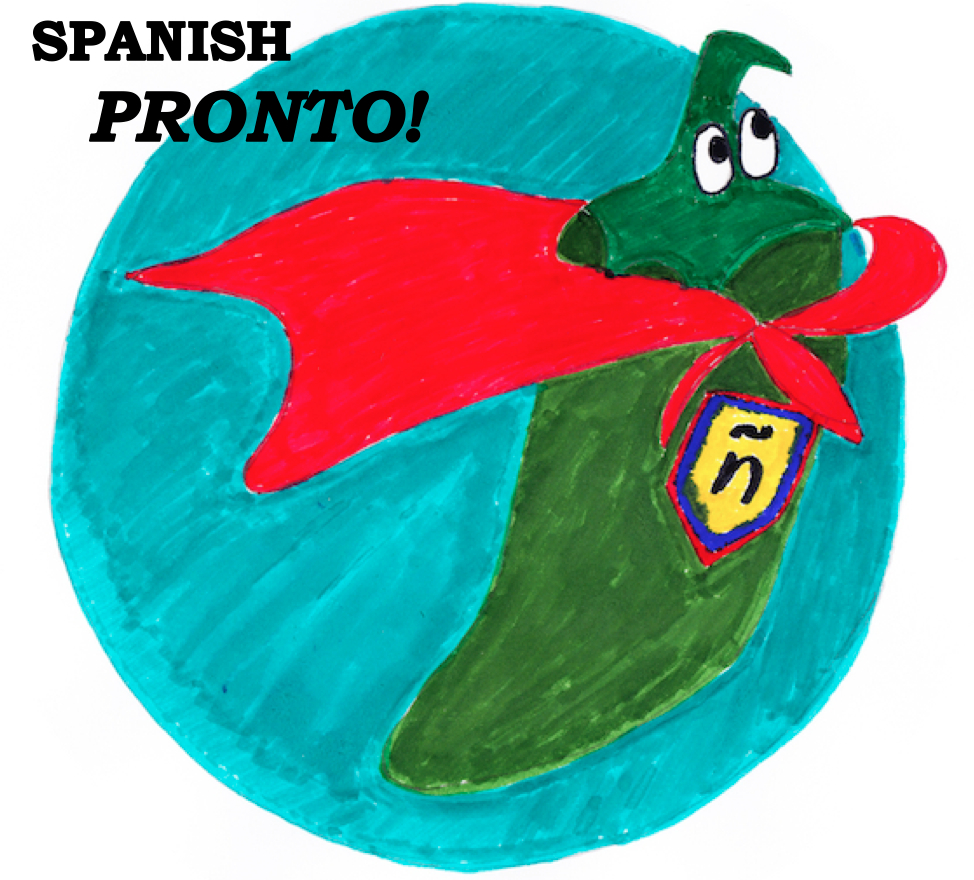
Spanish Vocabulary
Learn 10 Spanish words per day and know 2,500 words after one year!Many words in Spanish and English are similar, but similar words can have very different meanings, so be careful.
poder to be able to (can), being able to yo puedo tú/vos puedes/podés él, ella, usted puede nosotros, nosotras podemos vosotros, vosotras podéis ellos, ellas, ustedes pueden sea he/she/it/you(formal) might be, should be
ver to see; seeing
mi my (mi, mis)
tu your(informal) (tu, tus)
su his/her/its/your(formal)/their/your(formal, plural) (su, sus)
nuestro our (nuestro, nuestra, nuestros, nuestras)
vuestro y'all's (vuestro, vuestra, vuestros, vuestras)
Words pronunciation: 0:41 (41s)
Puedo = I can; puedes = you(informal) can; podemos = we can. Also worth learning: vos podés = you(informal) can (Argentina, Costa Rica, Nicaragua, etc.); vosotros podéis (or 'vosotras podéis') = y'all can (most of Spain). Poder, puede, and pueden appeared in earlier lessons.
Mi, tu, su, nuestro, and vuestro must have an -s on the end, if there is more than one thing possessed: My book = mi libro; my books = mis libros.
Mi, tu, and su do not change at all for gender of the possessed item, but nuestro and vuestro do: Y'all's car = vuestro coche; y'all's house = vuestra casa (y'all's houses = vuestras casas).
The 'tú' that means 'you' has an accent; the 'tu' that means 'your' has no accent.
Because 'su' can mean his, her, its, your (singular), their, or your (plural), it is often not clear whose possession is meant. In those cases, it is possible to add "de él," "de usted," "de ellas," etc., after the possessed item. For example, if you mean to say "her dad" ('su papá') but the person you are talking to might think you mean "your dad" ('su papá'), you can clarify by saying 'su papá de ella.' Another (more formal, less conversational) way to say "her dad" is 'el papá de ella.'
'Sea' [SAY-ah] is a present subjunctive conjugation (third person singular: he, she, [it], you(formal)) of 'ser' ('to be' [essence]). How you conjugate a Spanish verb depends on whether its action is definite (indicative mood conjugation) or indefinite (subjunctive mood conjugation). In general, if you can say 'might' or 'should be' (with 'should' expressing indefiniteness, not obligation) with the verb in English, there is a good chance you can correctly employ the subjunctive conjugation in Spanish (and that the indicative conjugation would be wrong).
¿puedo? may I?si piensas que puedes, o si piensas que no puedes, tienes razón whether you think you can, or you think you can't, you're right —Henry Ford
desde este ángulo podemos apreciar la pincelada del artista from this angle we can appreciate the brushwork of the artist
me preocupa que él sea tan estricto it worries me that he should be so strict
no hay peor ciego que el que no quiere ver there are none so blind as those who will not see ('there is no worse blind man than the one who does not want to see')
¿has visto mis llaves? have you seen my keys?
toma una galleta para ti y otra para tu amigo take one cookie for yourself ('for you') and another for your friend
quien fue a Sevilla perdió su silla 'he who went to Seville lost his seat' (i.e., "it was your chair, but then you left")
este es nuestro restaurante favorito this is our favorite restaurant
¿cuáles son vuestros planes para mañana? what are y'all's plans for tomorrow?
Examples pronunciation: 0:48 (48s)
© 2017-2018 Chris Marquardt, Spanish Pronto
http://www.spanishpronto.com/vocabulary_0001.html
http://www.spanishpronto.com/vocabulary_0002.html
http://www.spanishpronto.com/vocabulary_0003.html
http://www.spanishpronto.com/vocabulary_0004.html
http://www.spanishpronto.com/vocabulary_0005.html
http://www.spanishpronto.com/vocabulary_0006.html
http://www.spanishpronto.com/vocabulary_0007.html
http://www.spanishpronto.com/vocabulary_0008.html
http://www.spanishpronto.com/vocabulary_0009.html
http://www.spanishpronto.com/vocabulary_0010.html
http://www.spanishpronto.com/vocabulary_0011.html
http://www.spanishpronto.com/vocabulary_0012.html
http://www.spanishpronto.com/vocabulary_0013.html
http://www.spanishpronto.com/vocabulary_0014.html
http://www.spanishpronto.com/vocabulary_0015.html
http://www.spanishpronto.com/vocabulary_0016.html
http://www.spanishpronto.com/vocabulary_0017.html
http://www.spanishpronto.com/vocabulary_0018.html
http://www.spanishpronto.com/vocabulary_0019.html
http://www.spanishpronto.com/vocabulary_0020.html
http://www.spanishpronto.com/vocabulary_0021.html
http://www.spanishpronto.com/vocabulary_0022.html
http://www.spanishpronto.com/vocabulary_0023.html
http://www.spanishpronto.com/vocabulary_0024.html
http://www.spanishpronto.com/vocabulary_0025.html
http://www.spanishpronto.com/vocabulary_0026.html
http://www.spanishpronto.com/vocabulary_0027.html
http://www.spanishpronto.com/vocabulary_0028.html
http://www.spanishpronto.com/vocabulary_0029.html
http://www.spanishpronto.com/vocabulary_0030.html
http://www.spanishpronto.com/vocabulary_0031.html
http://www.spanishpronto.com/vocabulary_0032.html
http://www.spanishpronto.com/vocabulary_0033.html
http://www.spanishpronto.com/vocabulary_0034.html
http://www.spanishpronto.com/vocabulary_0035.html
http://www.spanishpronto.com/vocabulary_0036.html
http://www.spanishpronto.com/vocabulary_0037.html
http://www.spanishpronto.com/vocabulary_0038.html
http://www.spanishpronto.com/vocabulary_0039.html
URL for this page: http://www.spanishpronto.com/vocabulary_0027.html